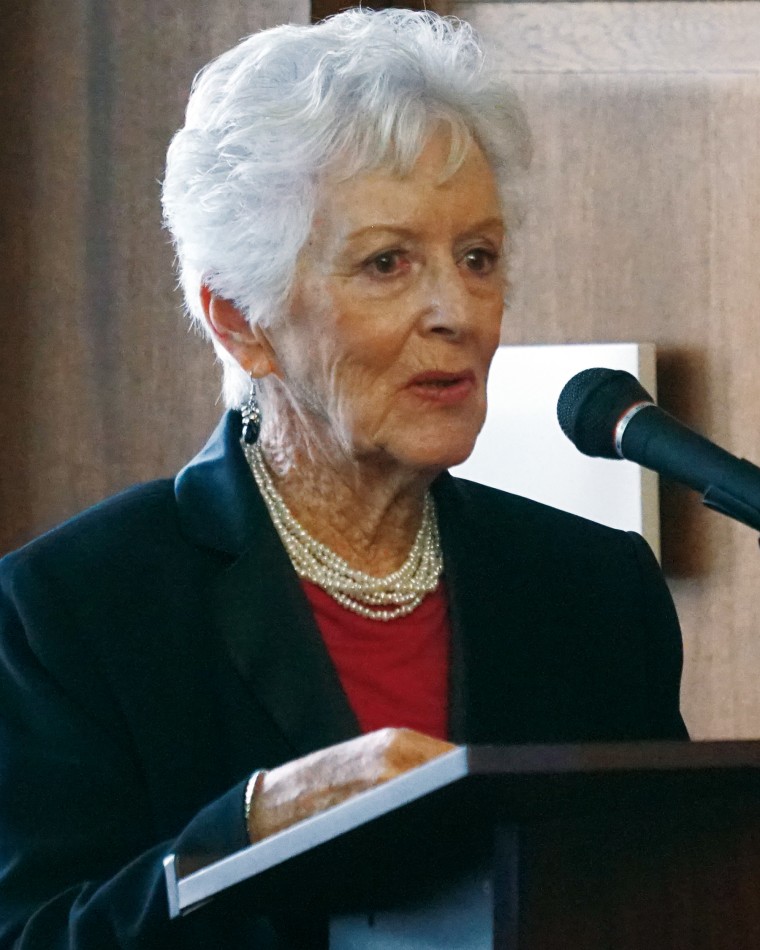More than 80 years after Jewish refugees fled to Shanghai during World War II, an exhibition in New York City shines a light on their experiences, which, experts and advocates say, carries profound lessons today.
The exhibition “Shanghai, Homeland Once Upon a Time — Jewish Refugees and Shanghai” opened to the public Tuesday in downtown Manhattan. The display commemorates the period from 1938 to 1941 when more than 20,000 Jews traveled thousands of miles from Europe to escape Nazi persecution and establish a life in China.
The refugees were able to find safety in Shanghai during a time when other countries refused to aid them. Experts and advocates say that their story is a chilling reflection of the necessity for others to accept and humanize those escaping persecution and oppression.
 Betty Grebenschikoff.Shanghai Jewish Refugees Museum
Betty Grebenschikoff.Shanghai Jewish Refugees Museum
“Hatred still exists of all kinds,” Elizabeth S. Grebenschikoff — whose mother, Betty, lived as a refugee in Shanghai for over a decade and is featured in the exhibit — told NBC News. “My mom would say … ‘If you are not an upstander, if you are not standing up for justice and fairness, then you are doomed to be a bystander.’”
The exhibit, hosted by the Shanghai Jewish Refugees Museum and scheduled to run until Aug. 14 at Fosun Plaza at 28 Liberty St., includes more than 200 photographs and 30 pieces of memorabilia, in addition to videos and personal stories from Jewish refugees and their descendants. It’s hosted by the Shanghai People’s Association for Friendship with Foreign Countries, and the Shanghai Fosun Foundation and is in part supported by the Consulate General of the United States of America in Shanghai and the Consulate General of the People’s Republic of China in New York.
Kevin Ostoyich, professor of history at Valparaiso University in Indiana, who’s interviewed many Jewish refugees, explained that Shanghai ended up being a “last resort” of sorts for Jewish refugees in the late 1930s as the city did not require an entry visa due to its unique legal status. In the 19th century, the port city was forcibly opened by Western powers for trade. It was divided into several sections, governed by these powers with their own set of legal norms and police forces. Japanese forces had also been laying claim to the northeastern part of the city before eventually taking over on Dec. 7, 1941, the day after the Pearl Harbor attack, Ostoyich said.
“It is in this very unique historical context, that you have a situation where you have a city that no one fully has control over,” Ostoyich said.
The bureaucratic loophole led to an unexpected safe haven for the refugee population, Ostoyich said. In 1938, most countries, including the U.S., refused to change their immigration policies to accommodate Jewish people fleeing violence under Nazi rule.
“Not many people realize that there was a time in which Jews were able to get out of concentration camps and out of Germany,” he added. “There was an opportunity for more Jews to survive. But the problem was that no one really wanted to open their doors.”
Though they found safety in the city, life was not easy for Jewish refugees.
Jerry Lindenstraus, 94, and his family fled to Shanghai after Kristallnacht, “The Night of Broken Glass,” in which Nazi forces destroyed synagogues across Germany and unleashed a series of pogroms against Jews in 1938. A few years after his family arrived, Lindenstraus said that Japanese forces took over the city and established a ghetto in Hongkew, where they squeezed tens of thousands of Jewish refugees into a single square mile.
>>> Read full article>>>
Copyright for syndicated content belongs to the linked Source : NBC News – https://www.nbcnews.com/news/asian-america/jewish-wwii-refugees-found-safety-shanghai-are-focus-new-exhibit-rcna96478










